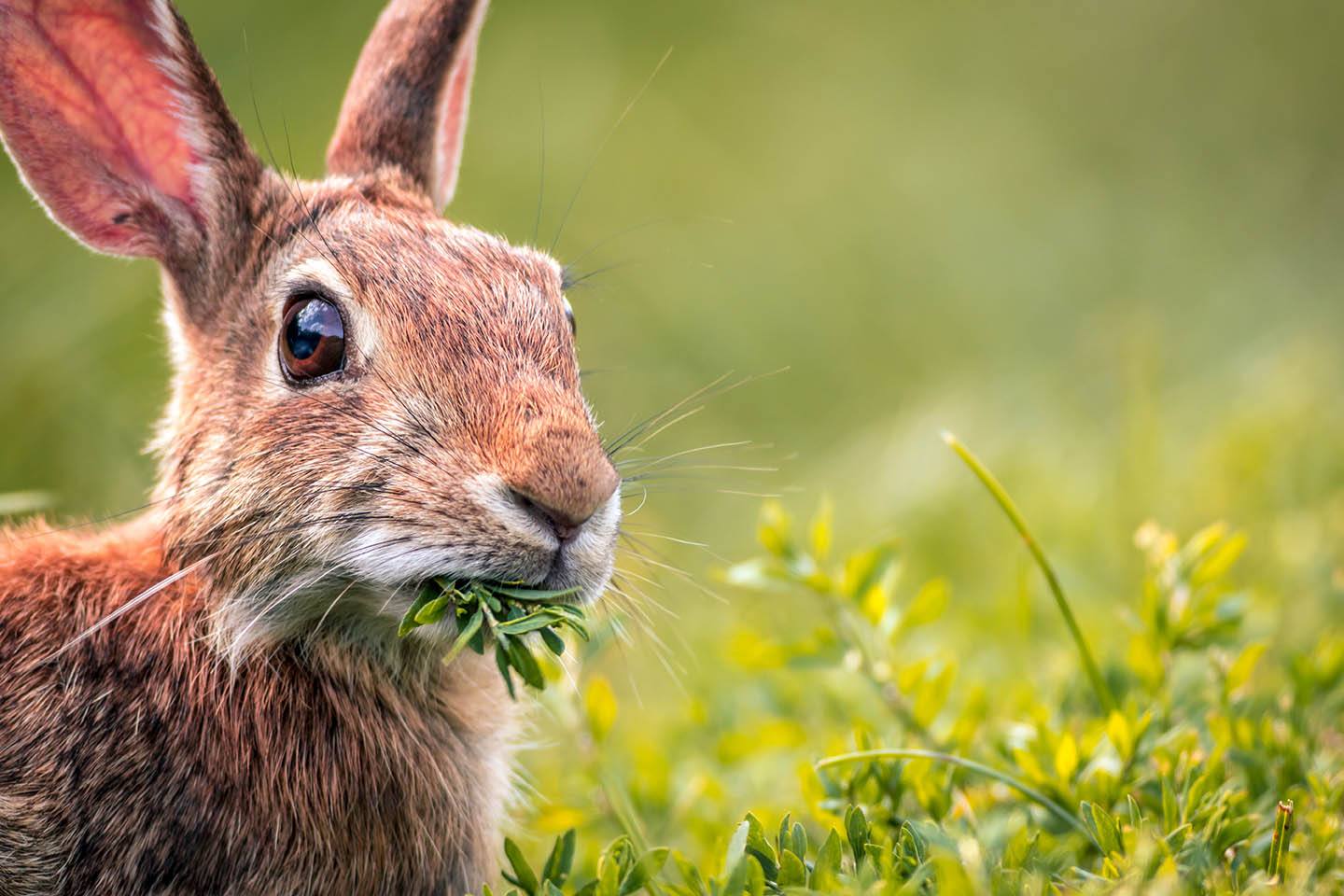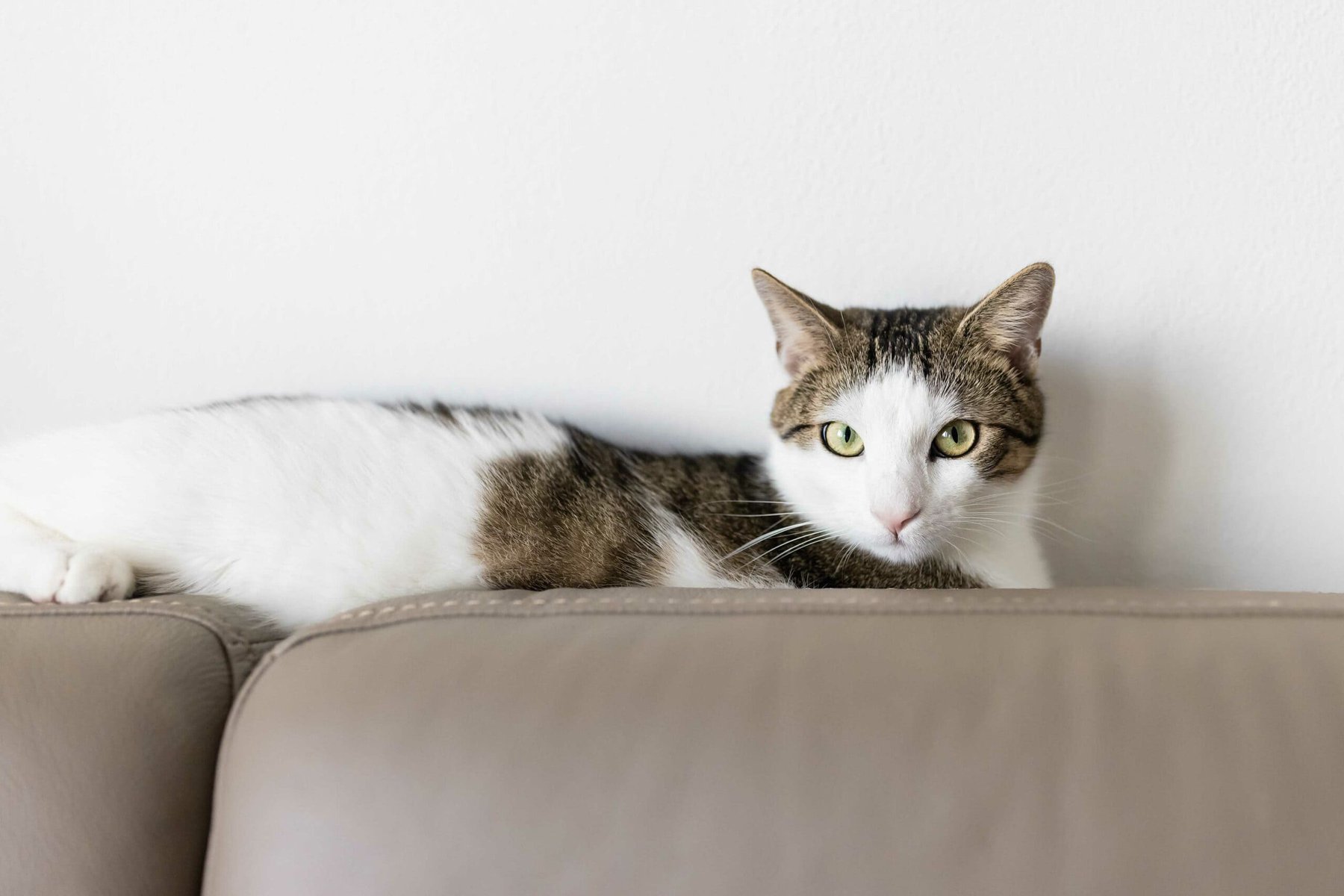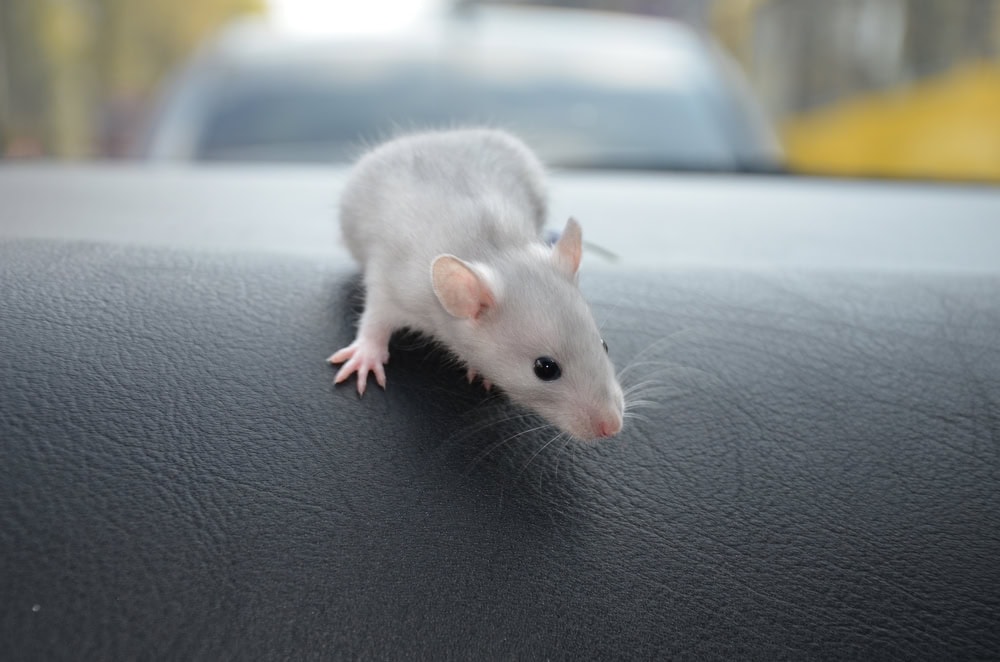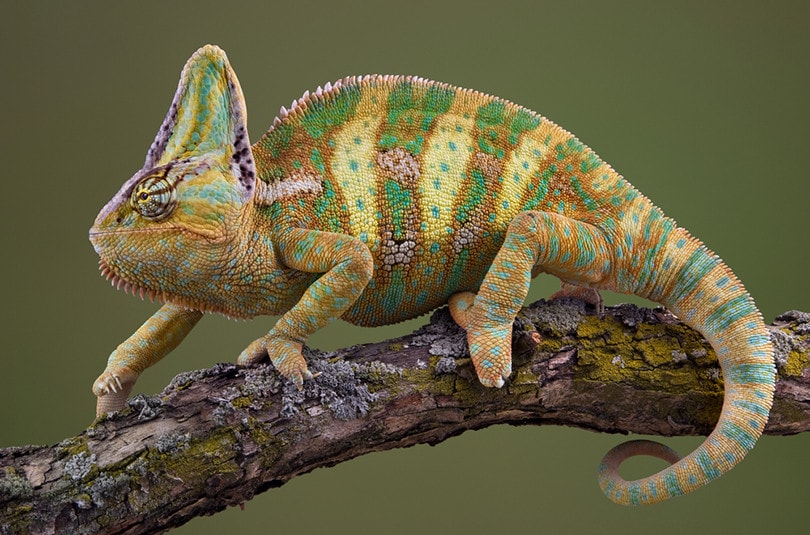VET APPROVED

The information is current and up-to-date in accordance with the latest veterinarian research.
Learn more »Click to Skip Ahead
If you have decided to get a rabbit as a pet, one of the first questions most people have is what to feed them. Many people will tell you that rabbits are herbivores, and they are correct. Your rabbit will stick to plants when it comes to meals, but there are plenty of things to consider when it comes to creating a healthy diet for your rabbit.
Keep reading while we discuss the best foods to feed your rabbit and the dangers of feeding them meat. We’ll also cover plants that can be poisonous to your rabbits so you can be confident you are providing your pet with a healthy and balanced meal.

What Is an Herbivore?
Herbivores are animals, like the rabbit, that only eat plant material and have specialized digestive systems to help break down tough plant fibers like cellulose. Other herbivores include the camel, cow, deer, elephant, goat, horse, iguana, and zebra. These animals eat a variety of plants, algae, fruits, and vegetables.
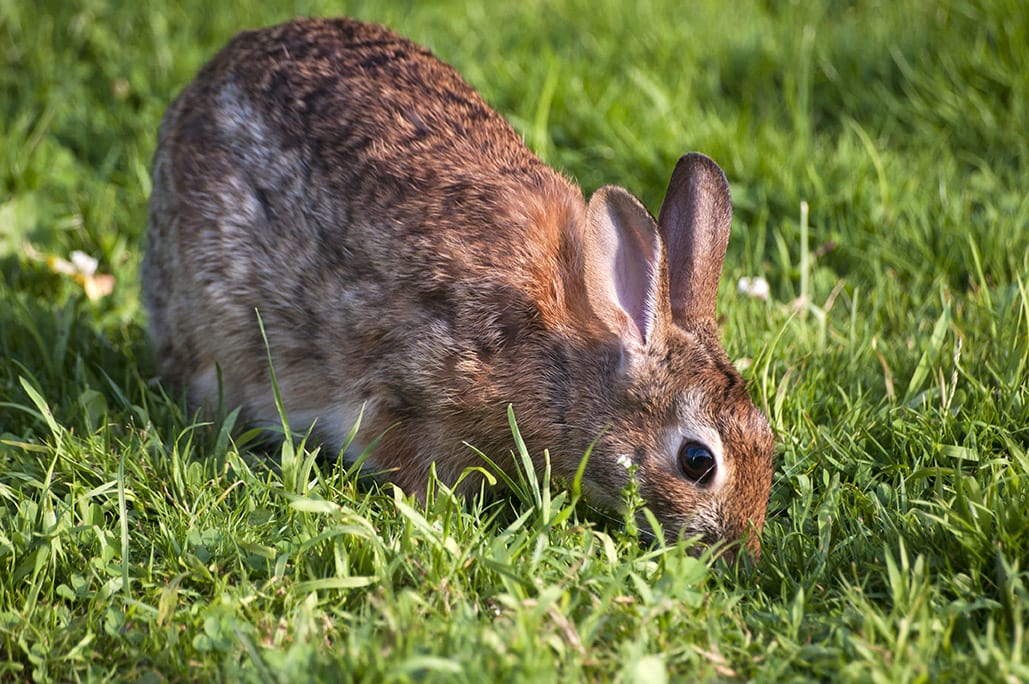
What Happens If a Rabbit Eats Meat?
Rabbits don’t have the digestive system to process the complex proteins in meat, so it can cause diarrhea, bloating, and gut stasis. Rabbits are hindgut fermenters, and their health depends on the delicate equilibrium of their microbiome. Eating meat would mess up the delicate fermenting bacteria, leading to dysbiosis (bacterial imbalance in the gut). It can also cause kidney and liver stress, as these organs are not adapted to handle the high levels of protein and fat found in animal products, potentially leading to metabolic imbalances or organ strain over time. Fortunately, rabbits don’t look at meat as food, so they are unlikely to eat it and probably won’t like it if they do.

What Do Rabbits Eat?
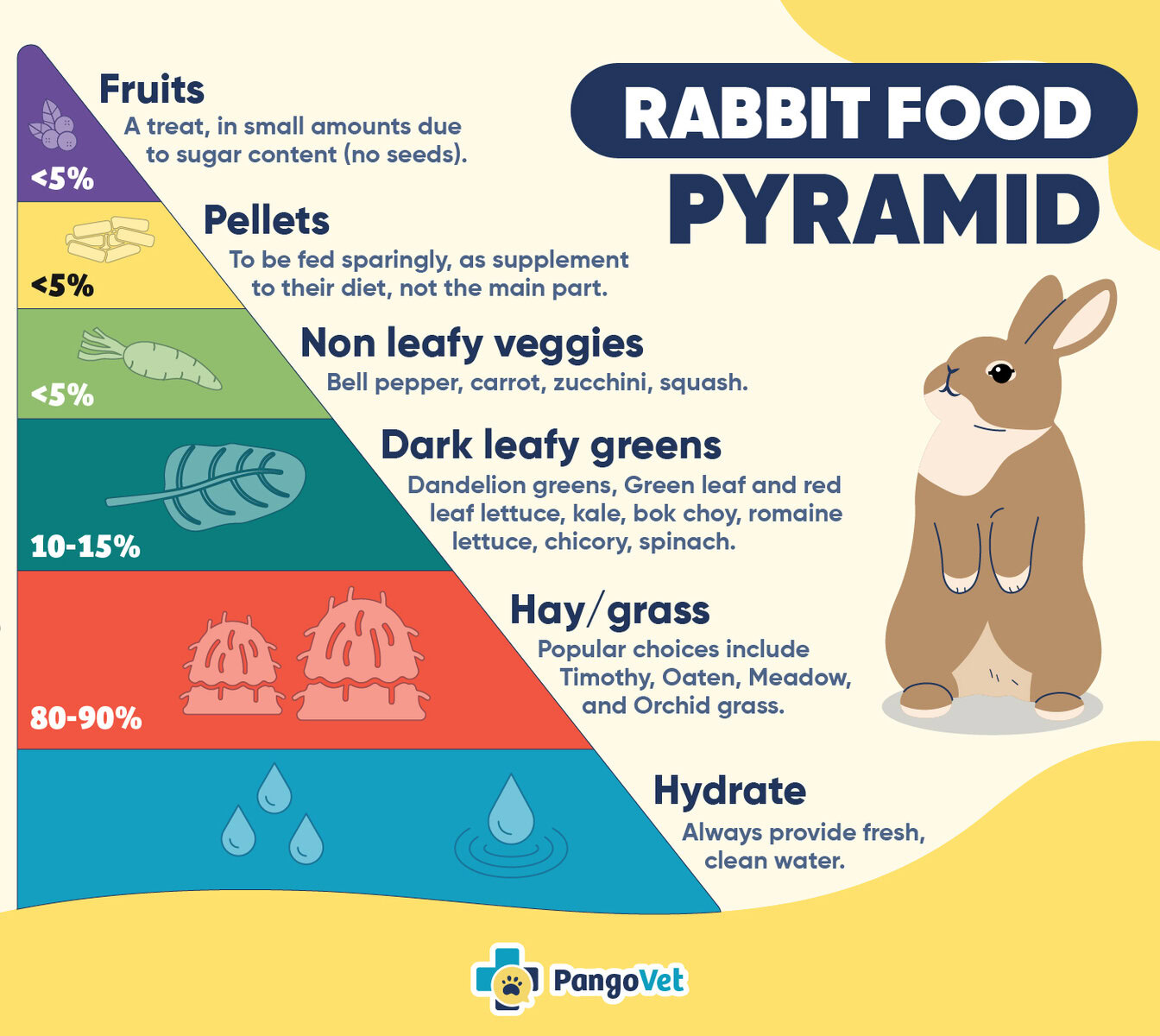
Timothy Hay
Your rabbit will require a never-ending supply of Timothy to stay healthy. Timothy hay is an excellent source of fiber, keeping the digestive system in optimal condition, and it also helps keep rabbits’ teeth at a manageable length. Rabbit teeth can grow almost 5 inches per year, so all kinds of problems can occur if your rabbit can’t grind them down with hay.
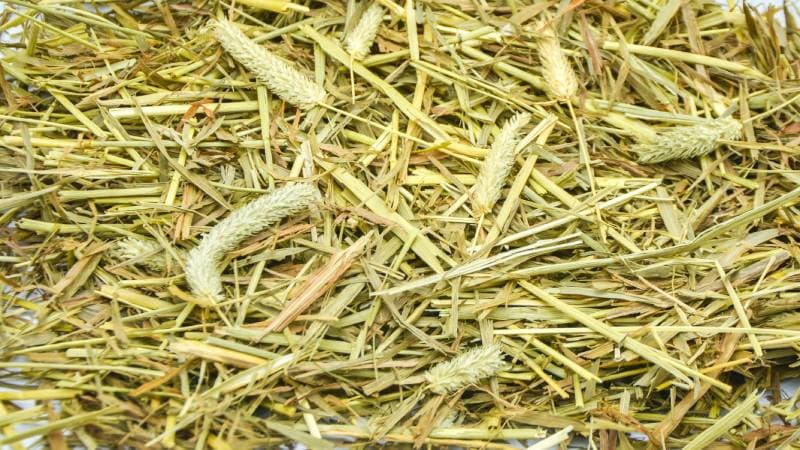
Foods You Can Provide Every Day
Besides Timothy hay, there are several fruits and vegetables that you can provide your rabbit as a stand-alone treat or mixed in with hay.
- Bell peppers
- Cucumbers
- Dandelion greens
- Most herbs
- Most kinds of lettuce
- Fennel
- Radish tops
- Alfalfa
- Clover
- Watercress
- Zucchini
- Brussel sprouts
- Carrot tops
Food You Can Give a Few Times a Week
This next group of foods is healthy and nutritious, but they can lead to digestive problems if you provide them too often. Most experts recommend serving these foods no more than three times per week and keeping a close eye on your rabbit to see if he has any adverse reactions.
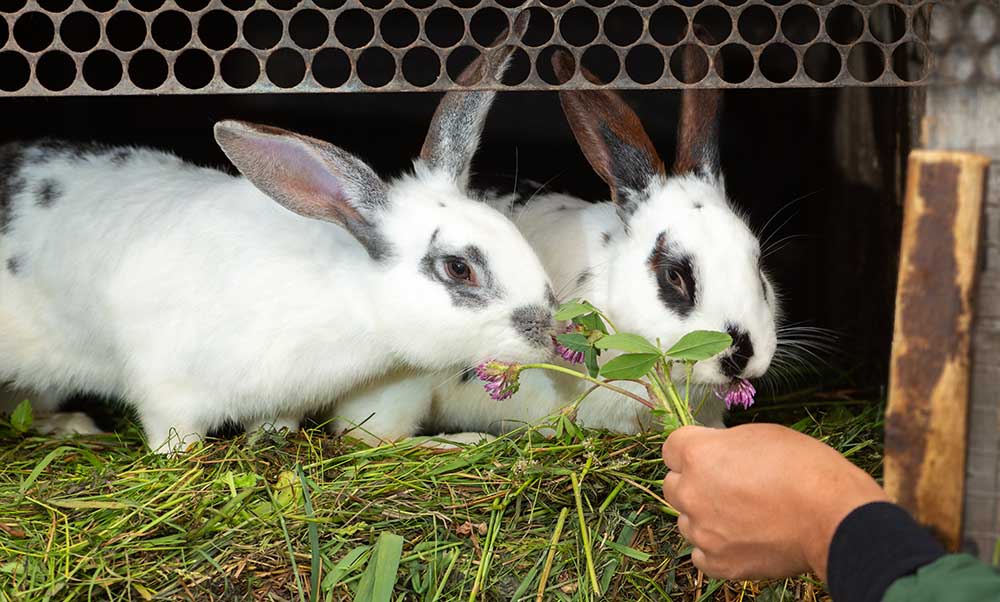
Occasional Foods
Most fruits contain too much sugar to allow your pet to eat them every day. Too much sugar can lead to weight gain and obesity, not to mention gut dysbiosis, which causes several other health problems. It’s best to use fruit as a treat and only give it occasionally and in tiny quantities.
- Most berries
- Pear (no seeds)
- Watermelon (no seeds)
- Pineapple
- Orange
- Apple (no seeds)
- Banana
- Plum (no pit)
What Foods Should I Avoid Giving My Rabbit?
As we mentioned earlier, you should avoid giving your rabbit any meat because they will have a hard time digesting it, but several plant-based foods can also be harmful to your pet.
- Macadamia nuts
- Tomatoes
- Most evergreens
- Rhubarb
- Sweet potato leaves
- Potato leaves
- Tulip bulbs
- Onion
- Almond
- Avocado
- Iceberg lettuce
- Many more
Should I Give My Rabbit Commercial Pellets?
Yes, we recommend making rabbit pellets a regular part of your pet’s diet because they will help ensure it gets all of the nutrients it requires to stay healthy. Most experts recommend a diet of 80%–90% Timothy hay, 10-15% fresh leafy greens, 5% rabbit pellets, and 5% maximum of treats as fruits. Choose a brand of pellets that does not contain any artificial colors or chemical preservatives.
What Is the Correct Portion Size for Greens?
We recommend 1 cup of fresh greens per 2 pounds of body weight per day. You should spread them throughout the day to ensure they remain fresh. Substitute everyday foods for one of the other types every few days to add variety to your pet’s diet.


Summary
Your rabbit is an herbivore that will require plenty of Timothy hay to keep its teeth under control, so keep plenty in its cage at all times. You can make a salad out of the greens and pellets or keep them separate depending on how your rabbit likes to eat. As long as you stick to the recommended guidelines, your pet should receive a well-balanced diet with plenty of variety without weight gain.
- You may also like: How to Tell If Your Rabbit Is Sad or Depressed
Featured Image Credit: Rabbitti, Shutterstock
